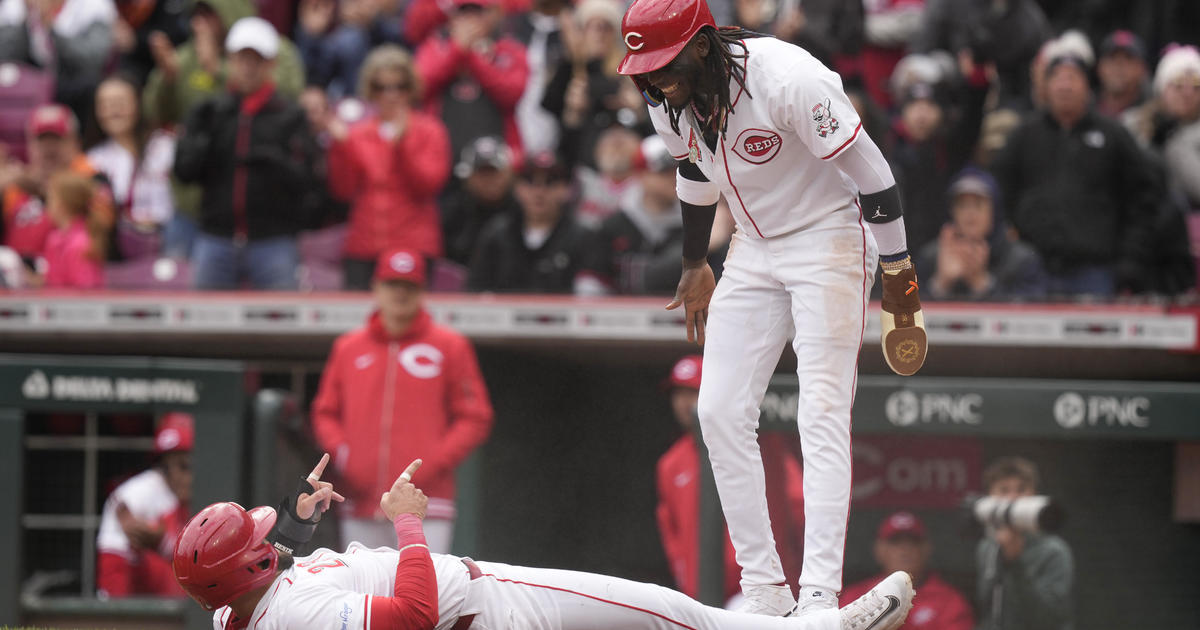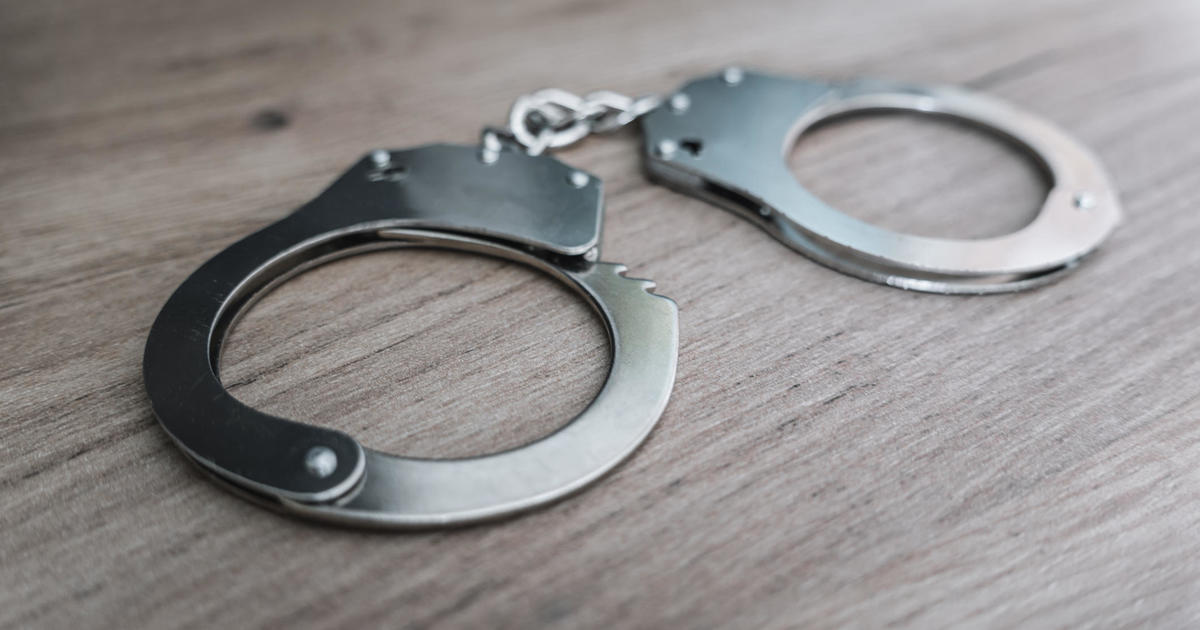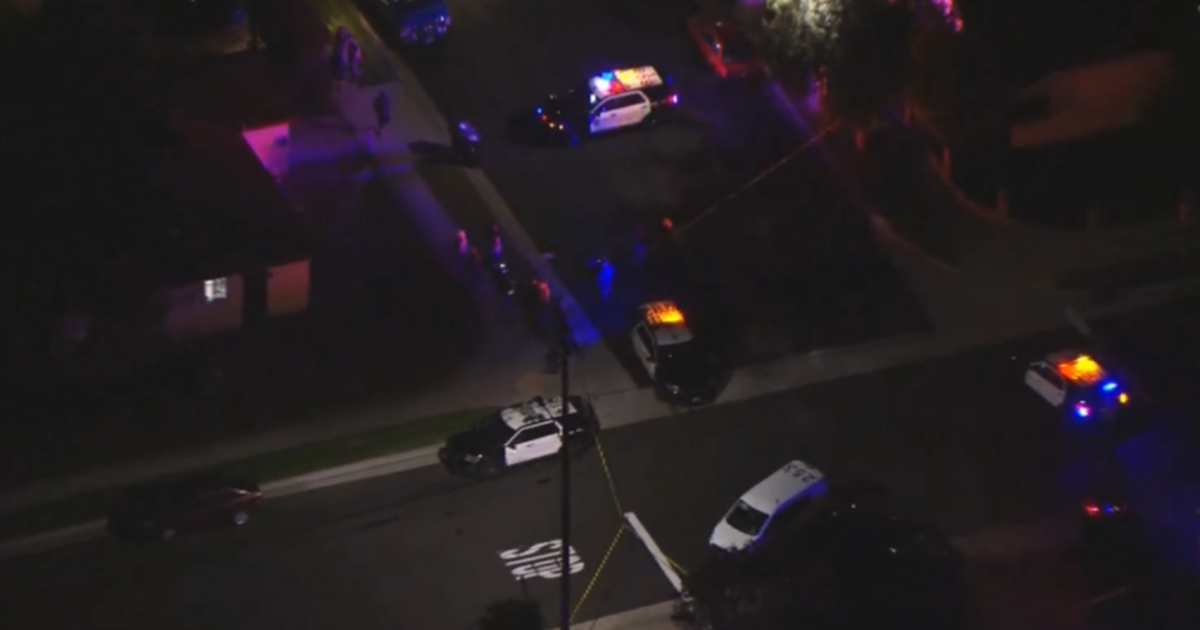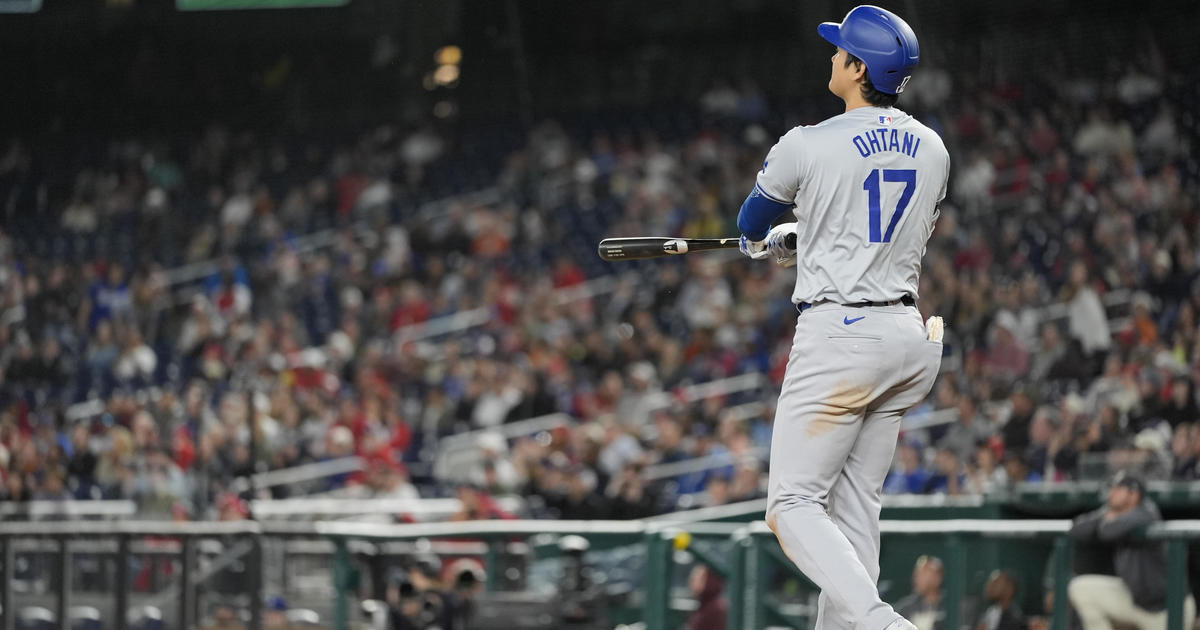Transcript Of Roger Goodell's News Conference Announcing Return Of Rams
Here is a transcript of the Tuesday's news conference to announce the Rams returning to Los Angeles.
Commissioner Goodell: It's been a long process and a long day so I apologize and appreciate everyone's patience in allowing our process to play out. The NFL owners tonight approved the return of the Los Angeles Rams to the market starting with the 2016 season.
In 2019, they will be opening in a new stadium, which we are all as ownership very excited about the kind of facility that is going to be built we believe will be extraordinary successful in the Los Angeles market. It's more than just a stadium. It's a project and an entertainment complex that we believe will be responsive to the kind of things we need to be successful with our fans in the Los Angeles market.
This agreement also allows the Chargers to relocate to Los Angeles as well. If they do not exercise that option, the Raiders would have the option also to move to Los Angeles – or to move to Los Angeles with the Rams. The agreement provides that we would give $100 million to both the Chargers and to the Raiders to use to help build a facility. If a new stadium could get built, we would contribute that $100 million to the project in both of those markets, which would be our hope.
The ownership I think personally believes that the project at Hollywood Park was the kind of signature project that is going to help make us successful in Los Angeles for the long-term. I said this morning that we've been at this for over 20 years. We felt that we needed to have the kind of stadium and kind of project that had the vision and had the facilities that would really bring a new kind of fan experience to the NFL and to Los Angeles. We're very excited about the project that Stan (Kroenke) has put together.
This morning I started the meeting by saying that relocation is a painful process. It's painful for the fans, communities, the teams and the league in general. Stability is something that we've taken a great deal of pride in and in some ways, it is a bittersweet moment because we were unsuccessful in being able to get the kind of facilities that we wanted to get done in their home markets. The excitement that we feel about being able to return the Rams to Los Angeles is balanced with a disappointment that we weren't able to get it done for our fans in St. Louis, San Diego and Oakland. We'll continue to try in those markets and we'll continue to try to address those issues.
We had a lot of ownership involvement. We had extraordinary leadership from our LA Committee. We had our Stadium Committee and our Finance Committee also involved. Art Rooney and Bob McNair chair the Stadium Committee and Finance Committee. They are important members of the LA Committee and I'm going to ask them to make a few comments, followed by Dean (Spanos), Stan (Kroenke), and Mark (Davis) if he would like to make any comments we're going to invite him also to do so and then we will take your questions. Thank you.
Art Rooney II: I just want to say thanks to all of our partners who went through a long process here for really the last couple of years – in particular, Stan, Dean and Mark whose commitment to getting something done brought us to this day. We're excited that we got something done. It was time to get a franchise back to Los Angeles. It was time we get this situation resolved and get a program in place for the other communities to continue to work to keep their franchises. It's been a long, difficult process with difficult decisions, but I think we came together today to make a good decision and see a great stadium be built in a great city. We appreciate all of the hard work by a lot of people. Thank you.
Bob McNair: I would like to congratulate Stan and also, thank Dean and Mark for their participation in this project. It has been going on for like two years that we've been working on this. These projects are very large and very expensive and involve a lot of people that requires a lot of cooperation and a lot of patience. I was pleased that we were able to come up with a plan today that was satisfactory to our members and member clubs. It will take care of the Los Angeles market and will provide incentive for the Chargers and the Raiders to see if they can do something in their home markets by giving them additional equity funds. We're quite pleased with the outcome and look forward to the development of a real NFL campus out in Los Angeles.
Dean Spanos: I would just like to read a statement: My goal from the start of this process was to create the options necessary to safeguard the future of the Chargers franchise while respecting the will of my fellow NFL owners. Today we achieved this goal with the compromise reached by NFL ownership. The Chargers have been approved to relocate to Los Angeles, at the Inglewood location, at any time in the next year. In addition, the NFL has granted an additional $100 million in assistance in the event there is a potential solution that can be placed before voters in San Diego. I will be working over the next several weeks to explore the options that we have now created for ourselves to determine the best path forward for the Chargers.
Mark Davis: This is not a win for the Raiders today, but at the same time, I'm really happy for Stan Kroenke and the Rams going to Inglewood. I want to congratulate Mayor (James) Butts of Inglewood. He is a good friend of mine. We'll see where the Raider nation ends up here. We'll be working really hard to find us a home and that's what we're looking forward to. For our fans, don't feel bad. We'll get it right. Thank you and congratulations, Stan.
Stan Kroenke: I told everyone in the room today that this has been multi-years in the making. I've spent a lot of time on the Los Angeles Committee for a number of years and it is a difficult market. It is a difficult place to permit a stadium and build something that we as a league can all be proud of. We worked hard, got a little bit lucky and had a lot of people help us. First of all, my partners in the league and the league office were just outstanding. They really served to inspire me and keep me going. It is a difficult process and as Roger said, it is bittersweet. We understand the emotions that are involved of our fans and it's not easy to do these things. They are purposefully made hard, but we're here today and made a decision and worked long and hard at the various alternatives. When they didn't succeed, we worked until this point. We're excited and want to thank all of my partners in the NFL. I also want to thank Mayor Butts, who is in Inglewood. This is a big economic benefit to a as some long-time Los Angelinos have told me, 'I don't know if you can do this, but if you can get it done, it will benefit a lot of people with lower incomes.' Also, I've had a home in the area for 20 years and it will be a lot of fun for me as I spend a lot of time there anyway to move forward, look forward and build a great stadium for our league and for Los Angeles. Thank you.
On if he expects to try to remain in San Diego:
Spanos: I'm going to take a day off tomorrow. This has really been excruciating for everyone. I'm going to look at all our options. I'm going to take a little bit of time here. We do have some options. It's very difficult to say right now I'm going to do this or I'm going to do that.
On why now was the time to get a franchise back to Los Angeles:
Goodell: I've often said over those 21 years what we need is a great facility. I think the reason why the two teams left for the large part in the 90's – the Rams and the Raiders – was because they didn't have an adequate stadium. We were unsuccessful for many years in trying to get something done that would meet the standards of what we expect for LA, what the entertainment capital of the world expects and what we want to deliver to our fans in Los Angeles.
I think what happened over the last year is we had two outstanding opportunities. Both of these stadium projects were extraordinary. It was a difficult decision for the ownership. But we also realize this was our opportunity. If we had three teams that were eligible to be able to make the relocation that had invested a great deal of time, resources, energy and emotion. We had communities that we were working to try to see if we could solve those issues in each of the home markets and in the incumbent markets. We were unsuccessful in doing that. This was an opportunity for the ownership to re-enter into the Los Angeles market, returning the Rams to their home market with a project that we think is going to change not just NFL stadiums and NFL complexes, but I think sports complexes around the world. I think this going to be one of the greatest complexes in the world. It's part of Stan's vision and I think the ownership supported that.
On what he says to the people of St. Louis who supported his football team for 21 years:
Kroenke: I've been open about this process. This thing has gone on since 2002. I understand the emotional argument. I said that earlier. It's not something that you want to do. When you have a history and a lease that was part of the reason that the team moved there and the lease required certain things, as an owner and to be able to appeal to our fans, we have to have a first-class stadium product. We're in that business elsewhere. We spend quite a lot of resources trying to make sure that we stay relevant, and these stadia have to be of a certain quality. Now, the promise was made. There was a very detailed requirement for community engagement, which we followed. What I would say is I understand the emotional side. I have a responsibility also to take care of the organization and a responsibility to my 31 other partners to have a first-class facility because it's where they play too.
On what the move means to the fans of Los Angeles:
Kroenke: This is the hardest undertaking that I've faced in my professional career, but as I said, I was on that committee for a long time. It's difficult in Los Angeles and you do not want to come into Los Angeles without something that's really first class because that's what is expected. I'll tell you a story about one of the guys that works with us that is from LA. His mother was at a deli yesterday in Los Angeles and a fan was wearing a Rams cap so she was talking to him and she wanted to know about the connection with the Rams. He said he was at the rally at the Coliseum on Saturday and that he thought that if there was a chance that the Rams might return, it would be his happiest week in 21 years or something and that's the emotional side. The Rams were there a long time and I know it means a lot to those fans. I often times get stopped in Los Angeles and they'll go, "Are you that guy?" Over the years, he'll tell me a story about how he went with his dad to the games when he was young and how he knew every player. I think it is tremendously exciting and a positive thing for Los Angeles.
On what point he decided the move was the right thing and the impetus behind it:
Kroenke: Without getting into all the details of it, I knew it was a big undertaking and I remember that when I was buying the remainder of the team in 2010, I thought long and hard about it. I thought long and hard about it because we had eight years with dealing with that lease and we weren't getting where we wanted to. The Rams had given various extensions and compromises to the authority – CBC and the RSA – allowing them a bit of a free ride, if you will, to get to that point. There were provisions that required by 2012 that if these plans and things weren't crystalized, that you were going to enter a different phase and that phase would be arbitration in front of judges.
From the history of those eight years of watching the Rams deal with that, I knew that was going to be an issue, but it wasn't something I particularly looked forward to, but I felt like you could not back off from it and I was always honest with the market about that. In 2012, it resulted in arbitration – three judges chosen by each side and a very detailed, expensive process where we spent lots of money and they spent some money too. It was expensive for both sides, but the judges in a very short time agreed with our plan. Now what did that really mean? It meant that the authorities had another six months to make up their mind. They could still say, 'Hey, they took our plan," and they chose not to. The remedy for that was only one and it was in the lease and it was the absolute right to relocate. That remedy was put in there if you go through the history of the Rams, it wasn't our remedy. It wasn't a remedy we particularly wanted at the time. We wanted the right to do what you normally do. We're real estate developers. Back then, we were involved as a 40 percent owner – or going to be – when that lease was delivered and the Rams and John Shaw were very specific because there were other alternatives and they were very specific about certain things that they wanted. One of them was that stadium maintained in a first class condition so the remedy that the Rams wanted was the right cure and sue for the damages, but that was never part of the deal. The remedy that they suggested was the right to relocate. After six months and after the arbitration when they decided they didn't want to do the plan, we had one remedy and that was the right to relocate. That's how we ended up here.
On how long the Chargers or Raider shave to decide if they're going to move and the price of the Rams' relocation fee:
Goodell: The Chargers have one year. The Raiders would have one year from the time that the Chargers either notice that they are not interested or stay in San Diego. The relocation fee is something that the ownership decides and that's a matter that is between the 32 owners.
On if he would like to see a stadium deal done in Oakland:
Goodell: I can't speak for Mark (Davis), but I will tell you that Mark has been very consistent with he preferred to stay in Oakland to get a stadium that's suitable for the long-term so the Raiders nation can have the kind of facility that they deserve. I think he'll continue to work on that but those decisions are going to be made by Mark.
We as a league and the collective 32 owners have said they want to incentivize the committee to go ahead and try to get the kind of facility that the Raiders need and that's why the $100 million was afforded to the Raiders to try to get something done in that market.
On clarifying the one year that the Chargers have to make a decision on possibly moving to Los Angeles:
Goodell: He has up to one year on the option.
On the Chargers can go in the 2016 if they wish:
Goodell: Yes
On if the same thing applies to the Raiders once the Chargers make a decision:
Goodell: Yes
On how the structure of the relationship would be between the Rams and potentially another club:
Kroenke: We have offered either a partnership in the stadium as an owner or we've offered the lease arrangement. The teams will have their choice of those options.
On his engagement with the stadium taskforce in St. Louis and why he was not involved with the process:
Kroenke: The issue becomes when you build something in Los Angeles, you have a way of charging for things that you can make sense of. The problem we ran into in St. Louis – I won't get into the fact that there's lawsuits threaten of what the governor is trying to do or that there's various holes in the proposal from the city – Allen and Kevin do a nice job. They do a very good job. There is a formal process of community engagement involved throughout that lease and that was followed. That was also followed by extensive efforts, including an extra year by the league not allowing anyone to apply for relocation to try to come up with a good alternative. That alternative did not work.
If you want to make the argument that I should donate, then you can make that argument.
On being involved in discussions with the city:
Kroenke: I was involved.
On the Los Angeles Committee first recommending Carson and how did that change into the results now:
McNair: When we had our first vote, we did not have the necessary number of votes to approve the proposal so it was a matter of trying to determine what our owners wanted and what kind of compromise we could come up with that would satisfy enough of them that we would be able to get the requisite 24 votes. We did and it was a very cooperative spirit on the part of everyone and I think that we came up with a very good solution.
On why they picked Carson first:
McNair: They were two very good projects. They're both very good and either one could be very successful.
On if the league would conduct business as usual like scheduling with the assumption the Chargers would remain in San Diego and what challenges would be faced because of the uncertainty of whether the Chargers would choose their relocation option:
Goodell: A couple of points. I would like to go back to one point that was just asked. The resolution that the owners voted on had multiple options today. The committee did make a recommendation, but there were multiple options for which they could choose from.
The second point I think that was a big factor Los Angeles Committee that they expressed to the ownership was the Chargers and the Oakland Raiders are playing in very old facilities. They're essentially built for baseball and it was something that they have been working on for a number of years to try and get a stadium that would work for football and something that would work for their fans. I think that was a big issue that I heard from the committee.
Back to your question, those are the options that Dean is going to have to think about. As he said, he wants some time to think about that. He has options with respect to Los Angeles. I'm sure he'll explore multiple options and opportunities and make a relatively quick decision knowing that he's got to make some decisions coming up for the 2016 season. We as a league think we can manage that in the short-term from a scheduling standpoint and any other issues. We're all looking for long-term solutions. We're looking to get stadiums that are going to be suitable for our teams and those communities for the long-term. I think today we took a big step. We have the return of the Los Angeles Rams to their home. We have a facility that is going to be absolutely extraordinary in the Los Angeles market that I think the fans are going to absolutely love. I think it is going to set a new bar for all of sports. That we're very proud of and we're very exciting about the potential for Stan and the Rams in Los Angeles and if Dean decides to do that or if the Raiders decide to do that if Dean doesn't, those are issues that we'll deal with.



